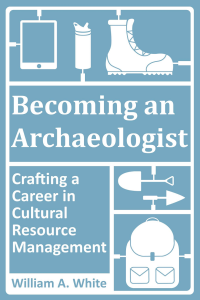 A co-worker recently told me a story about a job applicant who called inquiring about a position but inadvertently submarined any chance of her getting the job. My amiga helps hire people for a small department within a larger company and frequently fields phone calls about job postings. A few weeks ago, a woman called her department with some questions about the job posting. She seemed polite, experienced, and well-positioned for a job interview. However, her line of questioning demonstrated she was a poor fit for the department: unskilled in basic computer programs, unwilling to learn new computer systems, personal beliefs that conflicted with office philosophies, and an overall personality that did not mesh with the team already in place.
A co-worker recently told me a story about a job applicant who called inquiring about a position but inadvertently submarined any chance of her getting the job. My amiga helps hire people for a small department within a larger company and frequently fields phone calls about job postings. A few weeks ago, a woman called her department with some questions about the job posting. She seemed polite, experienced, and well-positioned for a job interview. However, her line of questioning demonstrated she was a poor fit for the department: unskilled in basic computer programs, unwilling to learn new computer systems, personal beliefs that conflicted with office philosophies, and an overall personality that did not mesh with the team already in place.
The conversation was a deal-breaker before the hiring managers even looked at her application package. It showed them she is not the person their looking for.
While this applicant thought she was doing the right thing to make her application package better, she was actually ruining her chances of being considered for the job. This happens all the time especially in fields where very eccentric, eclectic people congregate like cultural resource management archaeology.
Here are the three biggest character traits I see that prevent CRMers from getting hired or moving up in their career:
Unwillingness to Learn
How many times have you heard a colleague/supervisor/professor/student say something like the following?
- Historical archaeology? You mean “tin can archaeology”? I don’t do that.
- This computer stuff is so annoying. What do they think I am? A robot. I hate doing computer stuff. Why don’t we just keep using paper?
- Those people don’t know science. I’m the one with the PhD. I tell them what happened in the past.
- Prehistoric archaeology is just a bunch of rocks and bones. So boring. I don’t do that.
- This job would be great if it wasn’t for all that business stuff. This whole industry is so money-centric. All they care about is profit.
- Those safety checks are a waste of time. Back in my day (insert reminiscence about a bygone past where archaeologists were all tough men that never drank water or took a break and chugged liquor all night after eating a dinner of roasted rattlesnake) and we never got hurt.
Every time you’ve heard an utterance like that, you just watched somebody limit themselves, their potential, and their career. You also just heard somebody self-select themselves out of a position.
Nobody likes working with somebody that refuses to learn new things. This is the kind of employee companies don’t like hiring either, no matter how specialized/excellent/experienced they are because, eventually, they will just be a boat anchor for the company—dragging others down as they sink to their comfort zone.
Difficulty Adjusting to the Realities of the Cultural Resource Management Archaeology Industry
Everyone in CRM comes from a unique subculture and has a unique personal history. This is one of the things I like most about being a CRM archaeologist. You get to interact with interesting people from around the world on the daily.
But, sometimes I end up working with people I just do not like. Either it’s the fact that they think they know everything, don’t want to learn new things, or basically treat cultural resource management like it’s a paycheck. Usually I can deal with those things but I just cannot seem to get over people that refuse to acknowledge cultural resource management for what it is—an interesting blend of corporate capitalism and altruistic heritage conservation rooted in humanism.
The people that find it hard to adjust come in two camps: those who become enamored (or disillusioned) with the fact that CRM companies must make money and those who want to save every single site even though they know it’s not possible. You should be able to move back and forth between being a Six Sigma-businessperson working to make things better, faster, cheaper and the altruistic preservationist that fights the forces of development and modernity for the sake of archaeological data. This is a delicate dance that takes time to learn.
It is easy to get disillusioned when you know your job is predicated on the destruction of history, but you must figure out how to deal with the nature of this industry because it is not possible to save every single site. Every day, dozens of mid-twentieth-century subdivisions, 1960s rural burn piles, and entire road systems turn 50-years-old making them eligible for NRHP consideration. Our nation’s development would grind to a halt if we had to save every single ranch home built in 1966. Both development and preservation are sides of the same coin. They are necessary.
You must be able to accept your role as guardian and destroyer of archaeological sites if you want to have any chance of surviving in this industry over the long-term. Those who go too far to the corporatocratic side risk their careers, their company’s reputations, and abdicate their moral obligations as an archaeologist. They get known for low-balling and “not finding anything,” which defeats the entire purpose of doing CRM. Preservation purists risk being known as an oppositional force to development and to their company’s profits. These folks can ruin business deals that took a lot of effort to create by their unwillingness to compromise. They become pariahs that nobody wants to hire or work with.
You must follow the Middle Way if you want to make it in CRM. It is a tightrope that we all walk, some better than others.
Maintaining Garish Personality Traits
This is the hardest one to define and the most difficult one for anybody to counteract. Plainly put: Sometimes your personality makes it hard for you to find a job, stay hired, and get promoted.
There are a lot of CRMers that do not like me. Sometimes this is for personal reasons. Other times it is because of who I am and the way I act. Our personal identities have taken a lifetime to craft. They are integral to who we are and I am not somebody that should suggest you should completely change who you are just to get along with co-workers. But, I do think there are several behaviors and tendencies we can change to improve team chemistry.
For example, I frequently find myself doing things in a conversation that could be construed as manterrupting. I do not mean to do this but my mind moves fast and my short-term memory is not what it could be. If I don’t speak quickly, I might not get a chance to contribute to a conversation. So, I tend to interrupt speakers before they are done talking. I just want to contribute, but so do the others involved. I equally interrupt both men and women when I have something important to say, but women are more likely to interpret this as manterrupting. It pushes them out of the conversation and makes it feel like they are not welcome.
This is a bad habit. The only way I’ve dealt with it is by biting my lip and accepting the fact that it’s okay for me not to contribute to every single part of a conversation and to be aware of the role my gender plays in workplace interactions. I need to listen more and talk less. It’s hard for me to do but I understand it’s something that must because I do not want to be perceived as a bully or misogynist.
We all have these annoying tendencies, behaviors, and quirks that some people like whereas others strongly dislike. Noticing and rectifying these annoying aspects of our personality will do much to improve our relationships with our work teams and within our companies.
Do not self-select yourself out of an archaeology job
Addressing these three biggies of career sabotage are difficult for any of us to do. I don’t like prehistoric archaeology but I’ve spend much more working on prehistoric sites than historical simply because they are rarer and more likely candidates for preservation or data recovery excavations. I have always been willing to learn new things, even things in which I have no personal interest, because I understand that filling the needs of my company outweigh my disinterests. The delicate dance between being an agent of development and an agent of preservation is still something I’m working on. I am also working on addressing all those annoying habits in hopes of being a better team member (Fortunately, my wife points out many of these behaviors in the comfort of our home so they don’t seep into my professional life. Thanks for pointing out my shortcomings honey. jk)
Being a good co-worker is a lifelong process that starts with the understanding that who you are as a person reverberates throughout your company. The sooner you make this recognition the sooner you can be the kind of cultural resource management archaeologist companies want to hire.
What else can you add to this discussion? Write a comment below or send me an email.
 Having trouble finding work in cultural resource management archaeology? Still blindly mailing out resumes and waiting for a response? Has your archaeology career plateaued and you don’t know what to do about it? Download a copy of the new book “Becoming an Archaeologist: Crafting a Career in Cultural Resource Management” Click here to learn more.
Having trouble finding work in cultural resource management archaeology? Still blindly mailing out resumes and waiting for a response? Has your archaeology career plateaued and you don’t know what to do about it? Download a copy of the new book “Becoming an Archaeologist: Crafting a Career in Cultural Resource Management” Click here to learn more.
Check out Succinct Research’s contribution to Blogging Archaeology. Full of amazing information about how blogging is revolutionizing archaeology publishing. For a limited time you can GRAB A COPY FOR FREE!!!! Click Here
 “Resume-Writing for Archaeologists” is now available on Amazon.com. Click Here and get detailed instructions on how you can land a job in CRM archaeology today!
“Resume-Writing for Archaeologists” is now available on Amazon.com. Click Here and get detailed instructions on how you can land a job in CRM archaeology today!
 Small Archaeology Project Management is now on the Kindle Store. Over 300 copies were sold in the first month! Click Here and see what the buzz is all about.
Small Archaeology Project Management is now on the Kindle Store. Over 300 copies were sold in the first month! Click Here and see what the buzz is all about.
Join the Succinct Research email list and receive additional information on the CRM and heritage conservation field.
Get killer information about the CRM archaeology industry and historic preservation.



